Department chairs with vision
While academic chairs have different styles, methods of governing, and priorities, they share a common goal: to ensure that their departments not only function as smoothly as possible but continue to attain even greater heights of excellence.
Here, in an ongoing series, NYU Tandon’s chairs describe their vision and goals.
Chemical and Biomolecular Engineering: Eray Aydil
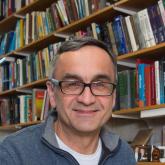
Q. What is your departmental focus?
A. We tackle a wide range of important fundamental problems that, when solved, will lead to improved quality of life, a cleaner environment, and a sustainable economy.
We focus our research and education on two areas of great importance, both guaranteed to remain among the top global grand challenges for the 21st century: human health and sustainable living.
Achieving our goals requires ideas at the nexus of biomolecular science, materials chemistry, and chemical engineering, and coming up with those ideas requires students with an education grounded in biology, physics, and chemistry fundamentals. Progress will require innovative collaborations that we are well-positioned to initiate, given that we work among and near some of the best minds in their various fields and the resources that facilitate those collaborations:
- NYU’s world-class medical school
- Tandon’s newly formed Department of Biomedical Engineering
- Our stellar Electrical and Computer Engineering faculty
- Skilled applied physicists, and;
- A cutting-edge cleanroom that can serve as a nucleation point for such partnerships.
Q. What specific areas are involved?
A. Our department is positioning itself at the forefront of several vital areas, including renewable energy generation and storage, sustainable chemical manufacturing, and personalized medicine, and we’re introducing our students to the excitement of scientific discovery at the same time.
Q. What do you foresee in the department’s future?
A. As an intellectually and culturally rich place, we intend to keep moving forward; we’re building an environment where faculty and students want to come to learn, discover, and solve the most pressing and challenging societal problems facing humans in the 21st century in a stimulating, collegial, inclusive, diverse, and scholarly environment. We are not afraid to break the mold and use non-traditional methods, taking risks and teaching our students to innovate in a collaborative environment.
Q. What strategies will you use?
A. Everything we’ve accomplished is due in large part to the core values we’ve adopted as a department, and those values will be instrumental in our future successes:
- We’re creating a collegial environment conducive to great work
- We value the scholarship and contributions of each faculty member
- We foster an intellectually and culturally rich culture and inclusive atmosphere where everyone is authentic and feels a sense of belonging
- Our students are our priority, and we adhere to the highest ethical standards in both research and teaching.
Electrical and Computer Engineering: Ivan Selesnick
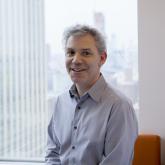
Q: What areas of research is the department focusing on as it moves forward?
A: Wireless communications constitutes an exciting area for us, especially as the industry pushes towards 6G, and we’re also very excited about robotics, especially considering that 5 MetroTech will be renovated with new robotics labs and offices, and we’ll be receiving a research version of the da Vinci surgical robot system as a generous donation from Intuitive Surgical, which will allow us to conduct cutting edge research in medical telerobotics. We’ve always been an important player in the field of hardware security, and we’ll continue to strengthen that position, and that holds true for systems and control, as well. I’ll also mention machine learning and energy--two other important areas where we’re making enormous strides.
Q: Many of those topics sound interdisciplinary; how important is collaboration for the department?
A: It’s always been highly important. I’m proud to say we have faculty members with joint appointments in mechanical and aerospace engineering, computer science and engineering, biomedical engineering, and the Center for Urban Science and Progress, to name just a few, and those kinds of cross-departmental affiliations demonstrate that professors have a wide pool of collaborators. We also have a strong connection to NYU Abu Dhabi, especially in the realm of hardware security, and we’re expanding collaboration with NYU-AD into other areas of research, as well.
Q: Is there anything interesting going on as far as pedagogy or curriculum?
A: By all means, we continually aim to enhance student experience. We recently introduced some very popular new graduate courses, such as Machine Learning for Cybersecurity, Parallel and Customized Computer Architecture, Deep Learning, Medical Robotics, and Internet-of-Things Security. We’ve also revised our undergraduate curriculum with more electives; this allows faculty to more readily introduce new courses as the concept of an ECE degree has been evolving. To give a specific example, the new undergraduate minor in robotics involves four new courses covering different fundamental areas of robotics and taught by cross-appointed faculty. In the courses, which are already popular, students learn both theoretical concepts and experimental skills. I’ll just mention here, as well, that every ECE undergraduate now receives their own take-home, hands-on lab kit for circuits and embedded systems, and we foresee those being useful all the way up to senior projects.
Finance and Risk Engineering: Peter Carr
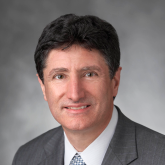
Q. Why is finance important?
A. Finance is the lubricant of the capitalist engine. Following in the footsteps of Sir Isaac Newton, some of the most creative minds in history have been attracted to the task of directing capital to the most efficient uses.
Q. What differentiates finance from financial engineering?
A. Our program teaches our students to apply theory, analytic tools and computational skills to the real-world decision-making problems they may face at banks, funds, fintech startups, and all manners of financial and corporate institutions.
Q. Where is the department today?
A. Tandon’s Department of Finance and Risk Engineering is already recognized globally as being among the premier academic programs of its kind in the world. Located just two subway stops from the canyons of Wall Street, our urban oasis is a launchpad for lucrative careers in the nation’s financial capital.
Q. What are your goals and how will you accomplish them?
A. As we move forward, we aim to cement our reputation even further by:
- Redefining the profession and embracing the increased role that machine learning is playing
- Providing research and thought leadership
- Producing top students capable of real-world impact, and;
- Making our strong professional network of alumni and affiliates even stronger.
Technology, Culture, and Society: Co-chairs R. Luke DuBois and Jean Gallagher
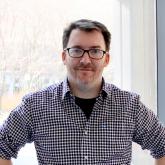
Q: Is it unusual for a department to have two co-chairs, rather than an individual?
A: It may be somewhat unusual, but Technology, Culture, and Society is far from a usual department, particularly given our existence at a school of engineering. Our students can explore the intersections between technology and the arts in our Integrated Design & Media program, learn the importance of Sustainable Urban Environments, or undertake Science and Technology Studies — all flexible paths that encourage them to combine their love of science with an understanding of its impacts on society.
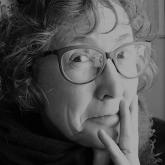
It’s a wide-ranging department requiring a diversity of experience and skills to oversee.
Q: What is your vision for the department moving forward?
A: TCS aims to become the “values” department of Tandon, providing instruction in what we see as core elements of Tandon engineering: ethics, sustainability, and creativity/design. We want to continue, of course, to deliver a nationally recognized degree through the Integrated Design & Media program, as well as best-in-class courses in ethics, sustainability and urban design, and general education for engineers, so that they graduate as well-rounded citizens of the world, no matter what their specific disciplines.
Q: Do you have any specific curricular goals?
A: We aim to better integrate our undergraduate offerings with other Tandon departments and programs, so that TCS courses are viewed as integral, rather than supplementary, to what the engineering student at NYU learns.




